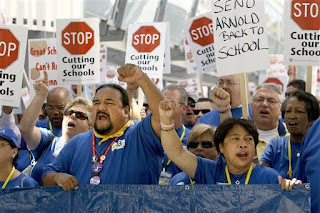
According to the Government, the unemployment rates in the United States has dropped. How much has it dropped? The rates from the month of October were recorded at 10.2% where as the rates of unemployment are now at 10%. That leaves the U.S. with a whopping total of a 0.2% decline in employment. I'm not sure what the big fuss is about over such a small percentage of decline. The real kicker is that even with the 0.2% decline, we are still doubling unemployment rates since the beginning of the recession. President of the Economic Policy Institute, Lawrence Mishel states that our unemployment rate is the highest and longest recorded since 1948. I mean, it is kind of obvious that the rates are going to rise around the holidays. Every retailer and business is going to be hiring extra help during the month of October through the end of December. So what really matters are the rates of the unemployment after the month of January when all the seasonal help is laid off. So to me, the 0.2% decline should not even be considered. Another reason for the decline might be due to the fact that many people have used up all their unemployment benefits already. With so many people being granted extensions because they simply can not find a job, this is definitely possible. Maybe if we weren't so worried about cutting taxes, then we could probably focus on the real tasks at hand. It is so easy for the government and government officials to get excited over a 0.2% decline of unemployment because they are not living it. When the situation hits home, it's a new ball game. My fiance got laid off from work November 20, 2009. The government is not experiencing this chaos, we are. We are living with this. The truth of matter is that this recession will get worse before it gets better. With good faith and lousy unemployment checks, all we can do is hope for the best and ride it out.






